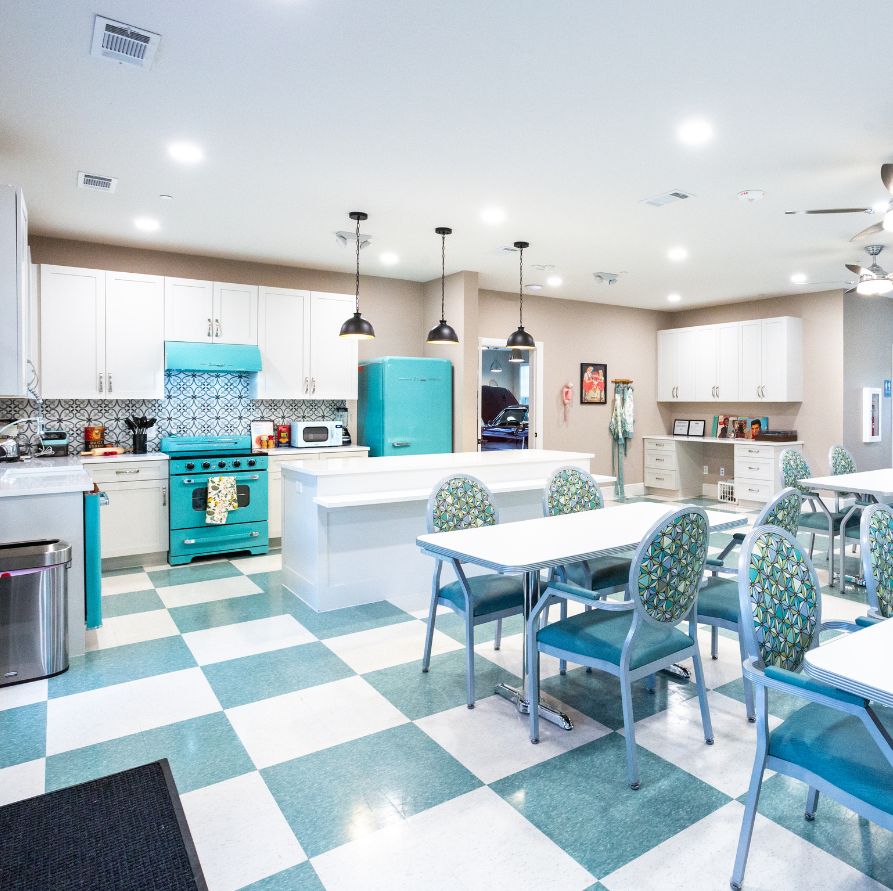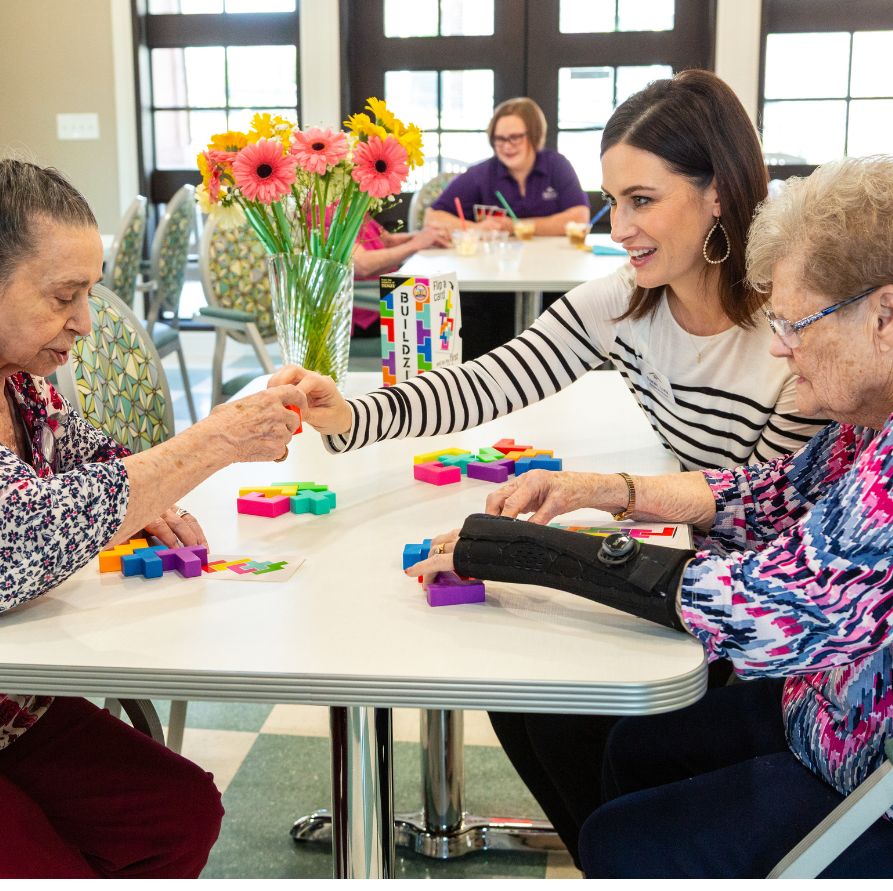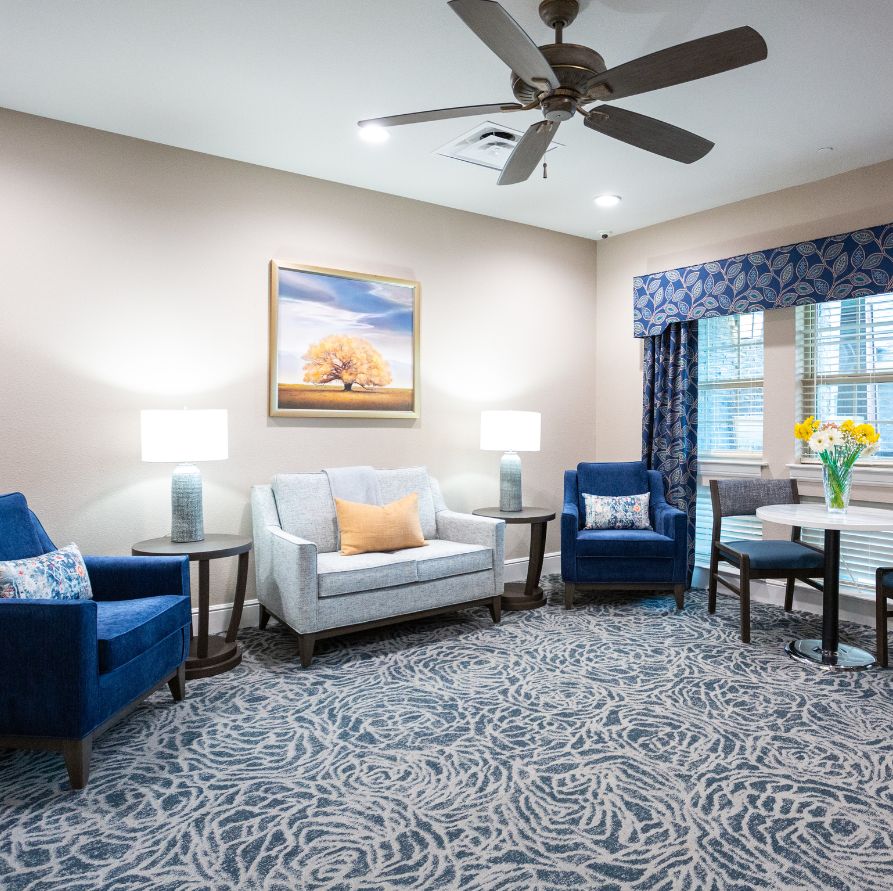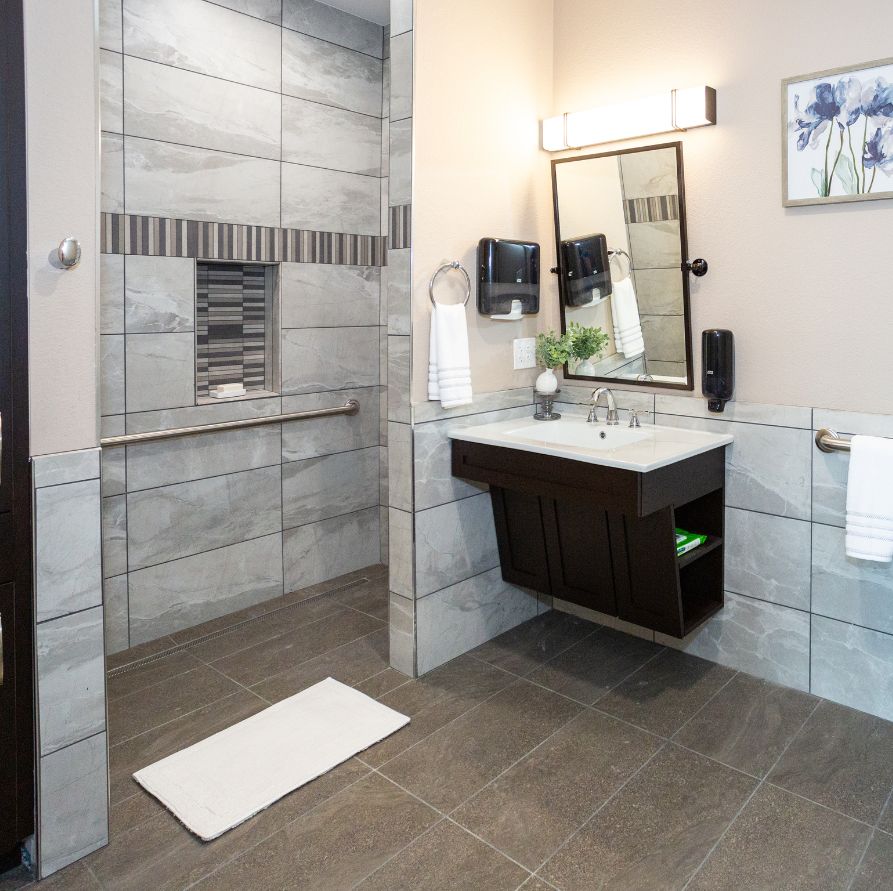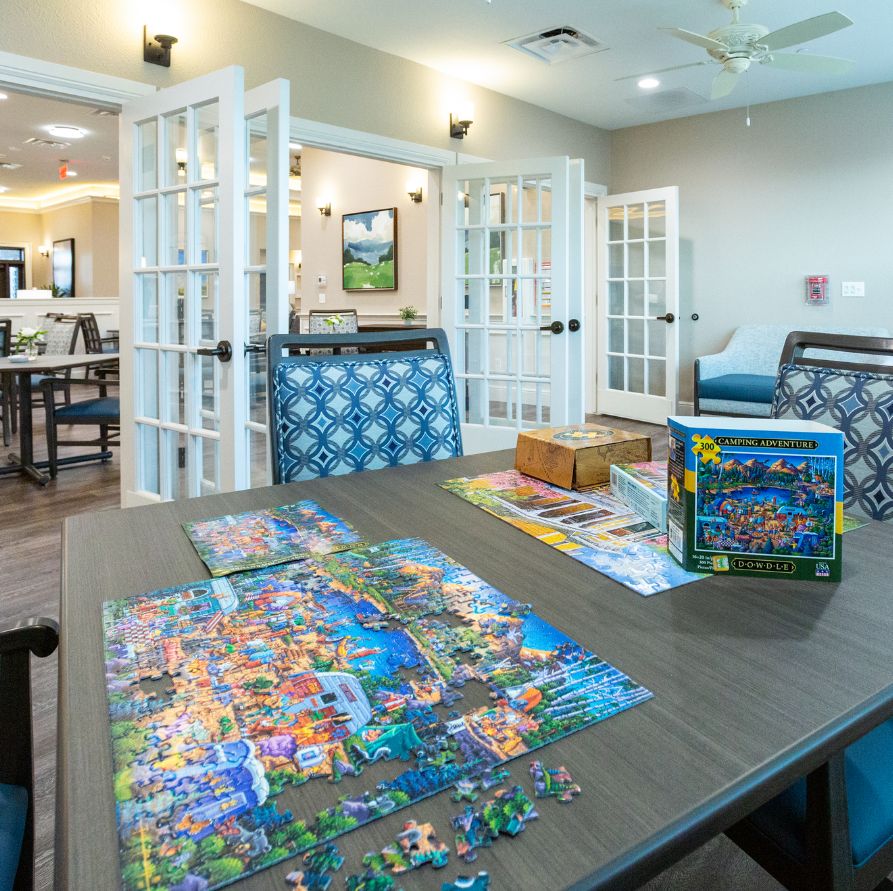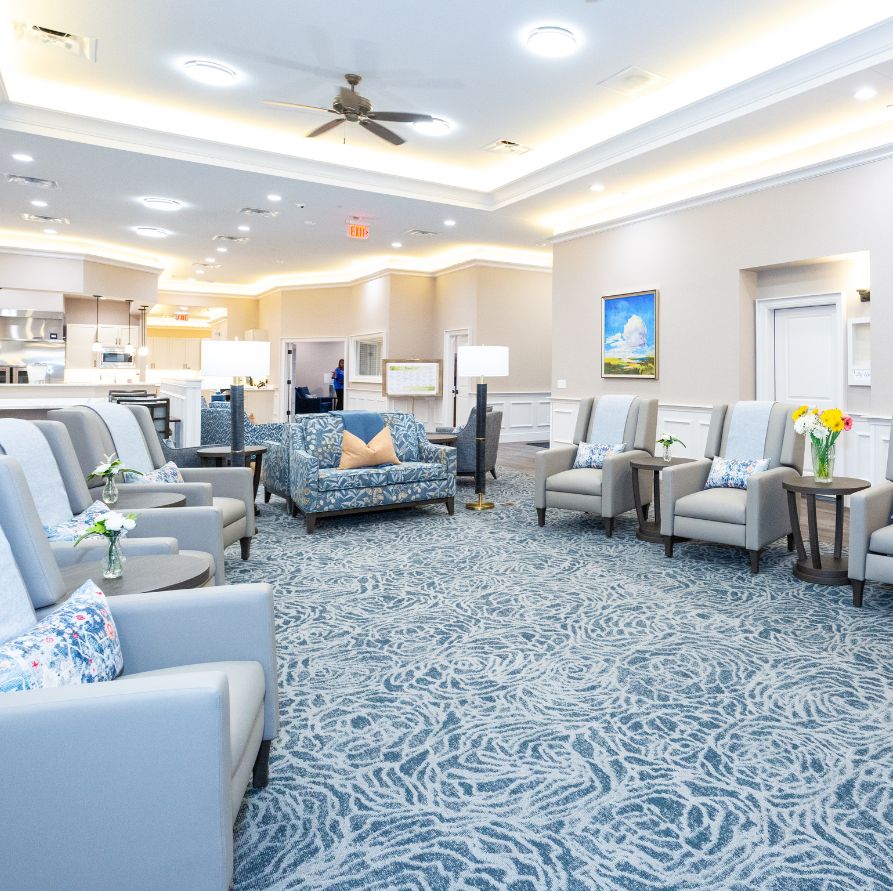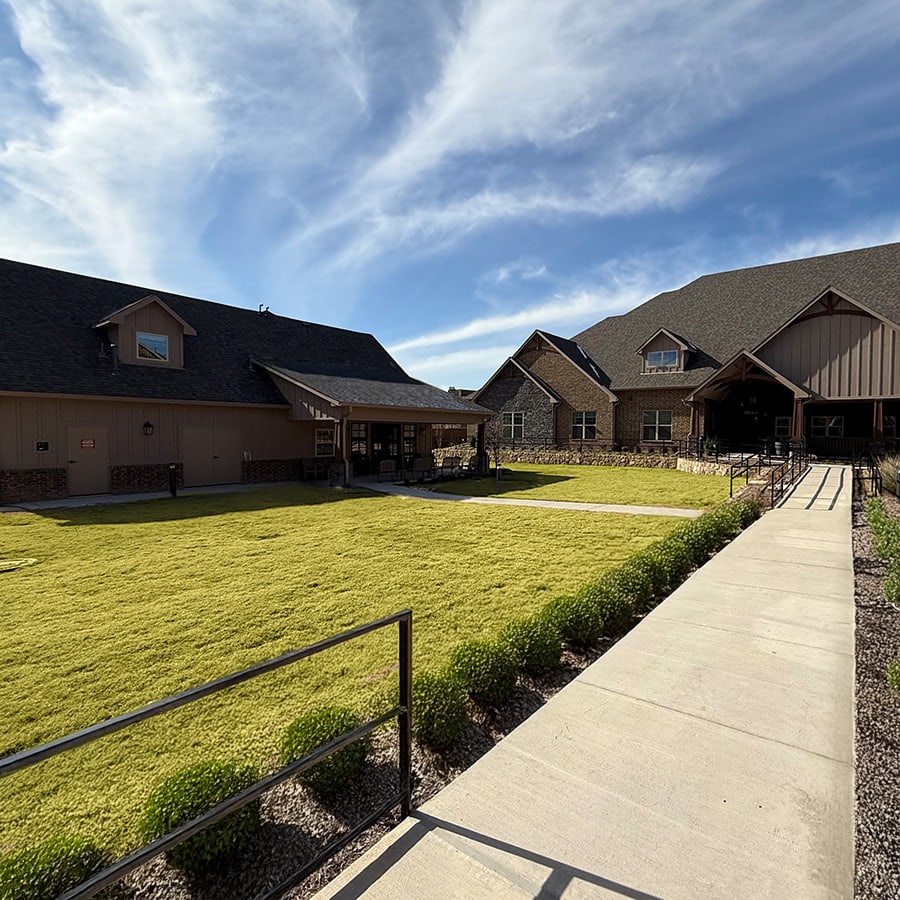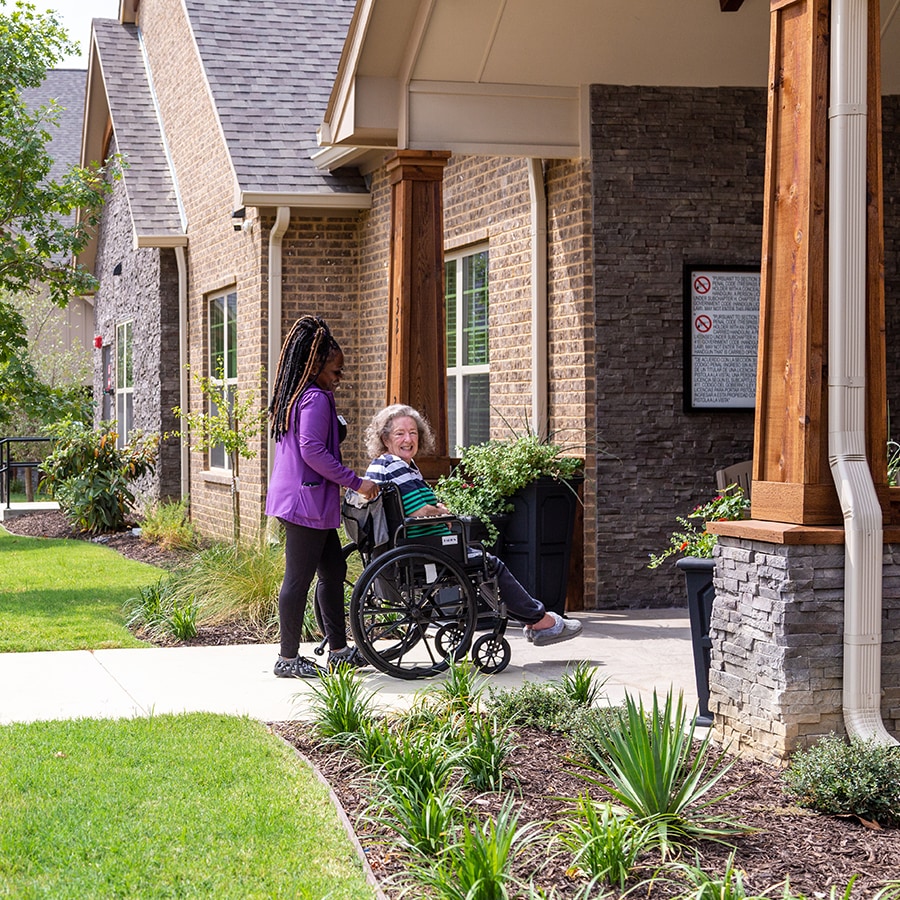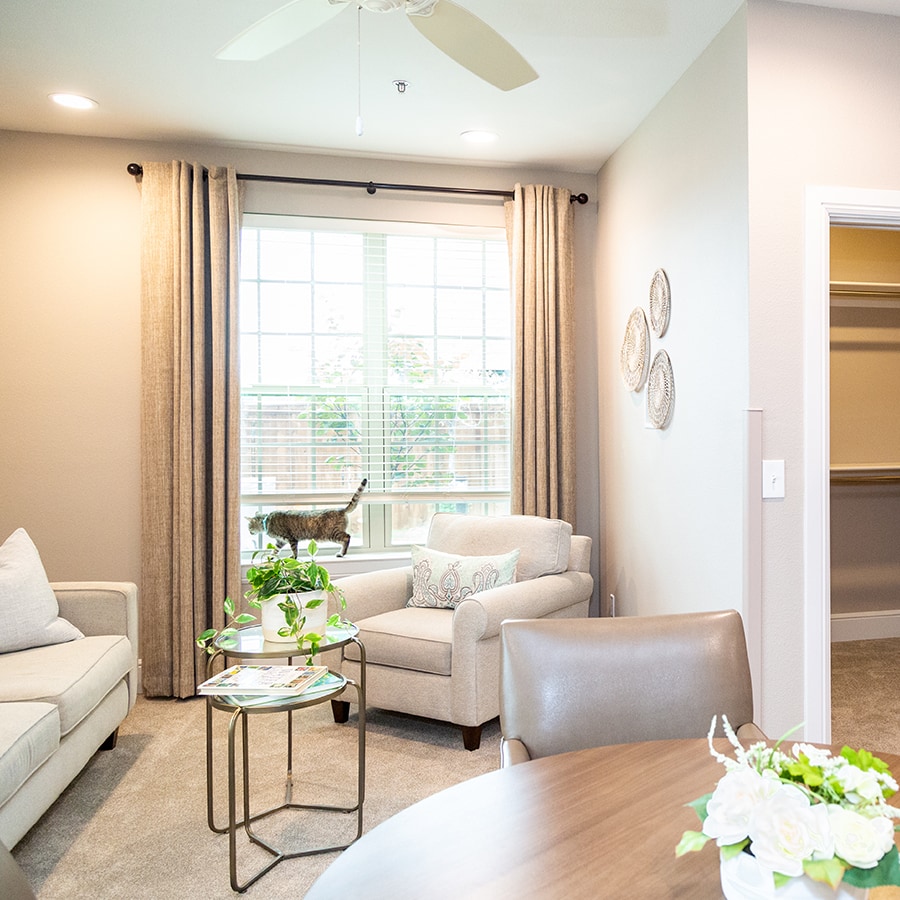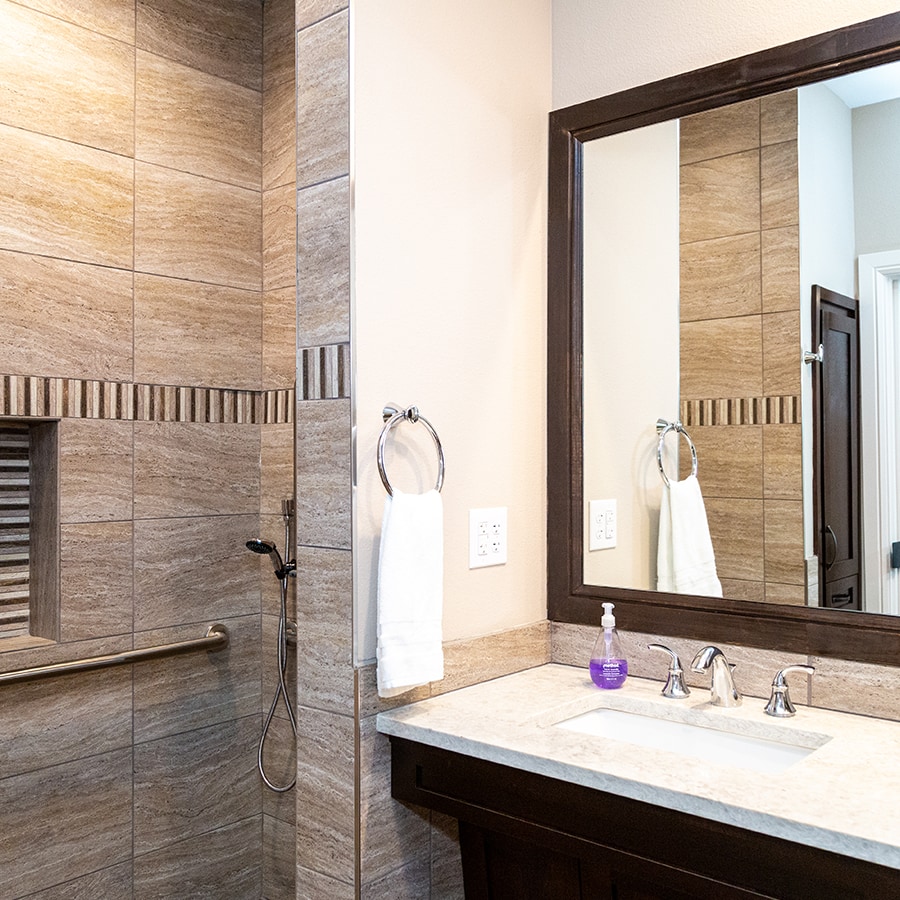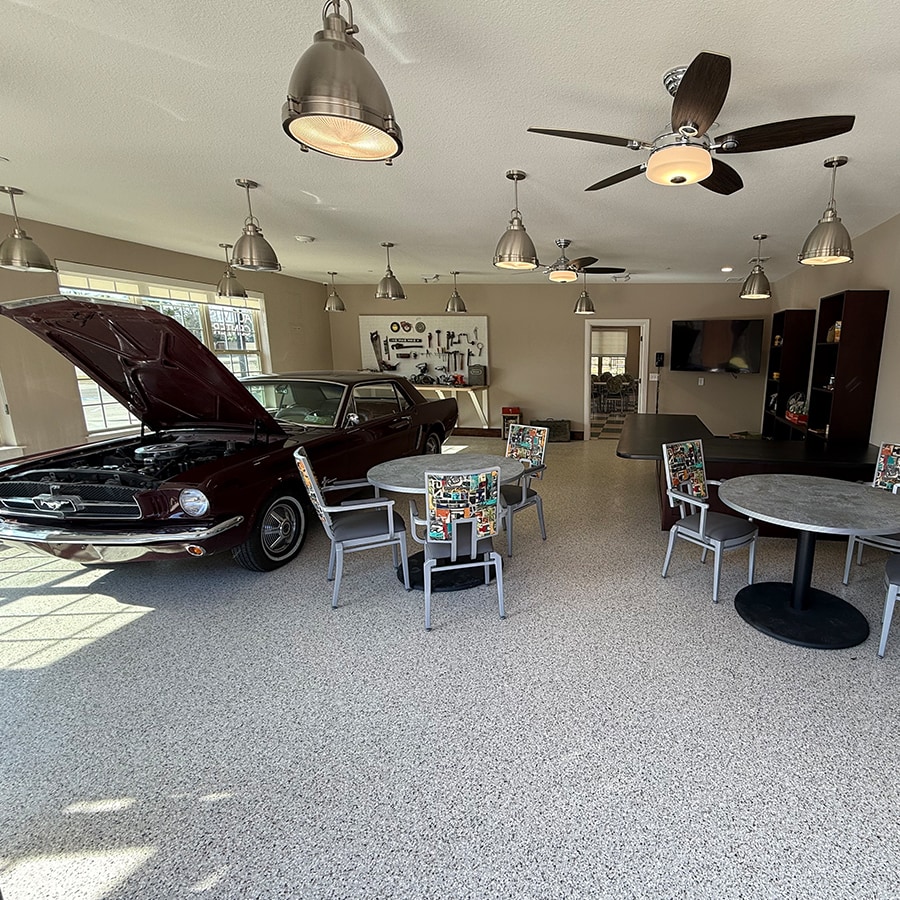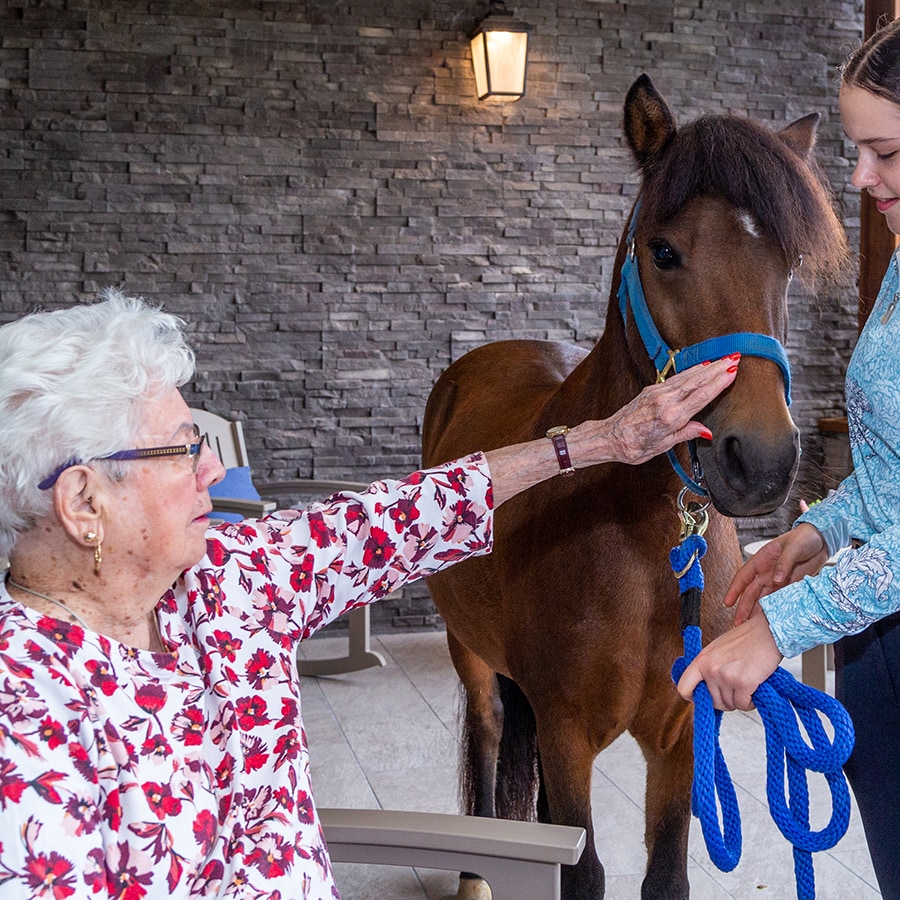If you have a loved one with a cognitive condition like dementia or Alzheimer’s, you want the best for them. And while caring for someone with memory impairment can be challenging, you don’t have to do it all by yourself. Memory care can be an invaluable option for families in need of additional, professional support.
Memory care is a form of long-term residential care specifically designed to serve the needs of people with memory impairments like Alzheimer’s or dementia. Memory care communities typically include trained staff, an emphasis on security and safety, and structured activities that engage individuals with memory impairments.
Understanding Memory Care
Designed for people with memory impairments, memory care is a type of long-term, residential care. These community environments typically emphasize safety, security, routine, and activities that support cognitive well-being in residents.
When is Memory Care Appropriate?
Deciding to choose memory care for a loved one is a big decision for many families. Circumstances and experiences can vary, but some signs that it may be time to start thinking about memory care include:
- Increased forgetfulness: As dementia progresses, symptoms get more serious—forgetting the date is one thing, but forgetting the year is another
- Wandering and safety concerns: People with memory conditions are prone to wander, so, if you’re concerned about your loved one’s safety, a memory care community with more robust security can offer peace of mind
- Health concerns: Professional help may be appropriate if a loved one forgets doctor’s appointments or when to take their medicine
- Challenges with personal care: Memory care staff can assist residents for whom personal hygiene, housekeeping, and dressing have become challenging
- Social withdrawal: Being socially isolated can make dementia symptoms worse, but memory care communities typically offer more accessible opportunities to stay social and engaged
- Caregiver burnout: When caregivers feel overwhelmed and unable to provide for their own needs, it may be time to consider memory care
Memory Care vs. Assisted Living
What’s the difference between memory care and assisted living? Both are long-term care options, but assisted living is designed for those who wish to remain independent, but who could use extra support with daily tasks. Residents of assisted living do not require intense medical care and are often looking for an arrangement that balances independence and support.
Memory care, on the other hand, is designed to meet the needs and enhance the well-being of those with memory or other cognitive impairments. Memory care communities typically employ staff trained to care for those living with dementia. They also place extra emphasis on safety, security, and cognitive well-being.
Memory Care: What to Expect

Memory care can offer many benefits. Residents can feel calmer in an environment built around routine and structure. Meanwhile, their family members can rest easier knowing their loved one is taken care of by professionals in a community designed to accommodate their needs.
Features of Memory Care
A typical memory care community will include features like:
- Access to 24/7 around-the-clock care
- Engaging programs and activities
- Nutritious meals
- Health support such as on-site nurses and medication management
What to Look For in a Memory Care Community
In the market for memory care? Be sure to ask any prospective community questions about:
- Training: Have staff undergone specific training to serve the needs of those with dementia?
- Security: What safety measures does the community have in place?
- Environment: Is the community easy to navigate, comfortable, and calming?
- Activities: What kind of physical, mental, social, and spiritual activities does the community offer to engage its residents?
Other good things to look out for include personalized care plans for each resident and opportunities for family members to stay involved and updated on their loved one’s care.
Memory Care at Teresa’s House
If you’re considering memory care for a loved one, we understand that it can be a challenging decision.
Teresa’s House is built on a philosophy of resident-centered design, experienced leadership, and professional staff. Memory care residents at Teresa’s House can expect:
- Structured and engaging daily activities based on scientific research
- A cosy, home-like environment that is far from institutional in its atmosphere—residents are welcome to bring their own furniture and decor!
- Focused care thanks to a 1-to-5 caregiver to resident ratio during daytime hours
- 24/7 on-site nurse and medication administered by certified staff
- Secure outdoor spaces and comfortable kitchens, common rooms, and sunroom
We also provide opportunities like intergenerational programming, pet and music therapy, and even occasional field trips. We try our best to have the same care team paired with the same resident because we believe that consistency fosters more trust. Companion suites are also available.
Visit Teresa’s House
Our work has been recognized on NBC Nightly News, CNN, Newsweek, and more. We stand behind what we do, but don’t just take it from us; see Teresa’s House for yourself! Schedule a tour today to learn more about our services and how our professionally trained staff can support you and your loved one.







